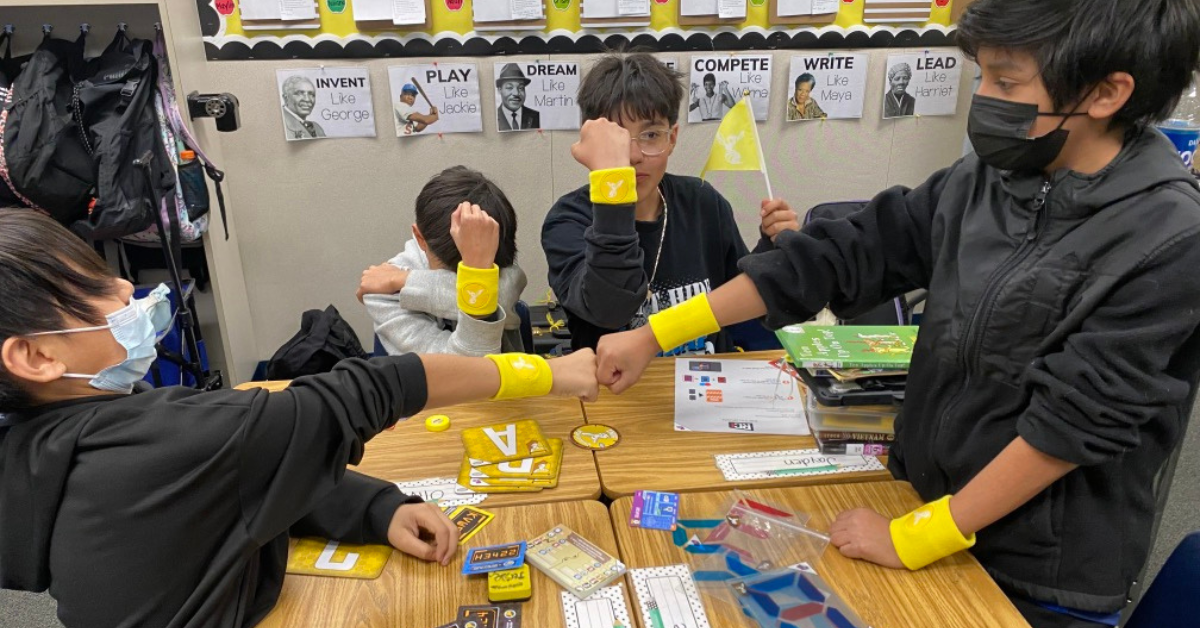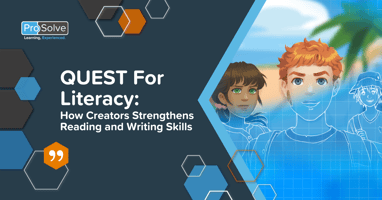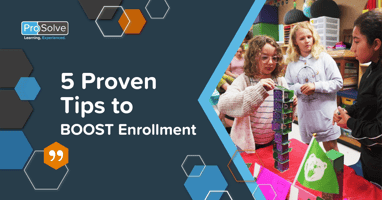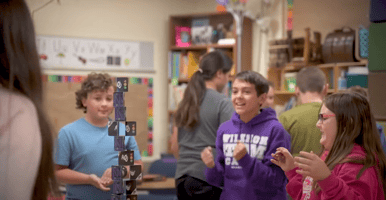The Goal: Students Become Architects of Their Own Literacy Journey
How to Nurture Problem-Solving Skills through Experiential Learning

Experiential learning is the process of learning through experience. It’s sometimes more narrowly defined as “learning through reflection on doing.” And, it’s a concept as old as time. Around 350 BC, the Greek philosopher Aristotle wrote, “for the things we have to learn before we can do them, we learn by doing them.”
But as a defined educational approach, experiential learning is actually a recent concept. Beginning in the 1970s, educational theorist, David A. Kolb helped develop the modern theory of experiential learning. Kolb was drawing on the work of educational reformer John Dewey, psychologist Kurt Lewin, and Jean Piaget, a psychologist known for his work on child development.
Experiential learning is a powerful tool to help students develop problem-solving skills. It’s the idea of experiencing a situation, reflecting on that experience, and then applying the lessons learned to future situations. While these may sound like complex concepts, it can be very easy to implement with learners of all ages.
The best thing about experiential learning is there’s no cost to get started. However, the outcomes are priceless and irreplaceable in nurturing problem solvers.
Here’s 5 ways educators can nurture problem solvers using experiential learning.
1. Let’s get messy with hands-on experiences
Imagine students in two different scenarios. In one, they watch as an educator conducts an experiment and lectures them on the results. In the second scenario, students break into small groups, conduct their own research, and analyze their own results. Which option sounds more beneficial (and more fun) for learners? This one’s a no-brainer. The hands-on experiences achieved during this process, provide countless options to learn by trial and error and discuss outcomes.
"Learning is more effective when it is an active rather than a passive process." —psychologist Kurt Lewin
2. Safe spaces accelerate learning
Oftentimes students are hesitant to open up in class for a variety of reasons. They may be afraid they’re providing the wrong answer. No one wants to look silly or stupid, especially in front of friends. Others may lack the confidence to speak out in a group setting. But we do know that learners grow in supportive environments so make it a priority to create one. Invite students to provide answers, even if it’s wrong or if it’s a best guess. We all learn from our mistakes. We even learn from the mistakes of others. Encourage students to participate in the safe and supportive environment you create and nurture.
“To learn from their experience, teams must create a conversational space where members can reflect on and talk about their experience together.” —David A. Kolb
3. Talk it out
Reflective thought is important at every age and it’s a critical component of experiential learning. Discuss processes, outcomes, mistakes, and failures with your students. Encourage them to reflect on their experiences, think about what they learned, and consider how they might apply these lessons to future situations. It’s a habit that will serve them well throughout life.
“We do not learn from experience. . . we learn from reflecting on experience.” —educational reformer John Dewey
4. Student-led options
Similar to the idea of getting “messy” as part of experiential learning, student-led lessons and activities can take problem-solving concepts beyond the classroom. This gives another dimension to student voice. Don’t be Charlie Brown’s teacher (“wah wah wah wah”). Those lessons always put Peppermint Patty to sleep. Instead, get learners actively involved by letting them choose the direction they’re moving in.
“Good grief!” —Charlie Brown
5. Growth mindset
The concepts mentioned here culminate into ways of fostering a growth mindset. It’s the belief that a person’s abilities can be developed through dedication, hard work, and encouraging them to take an active involvement in learning. Encourage your students to embrace this growth mindset and to believe in their ability to develop their own problem-solving skills.
“[One of the goals of] education is to form minds which can be critical, can verify, and not accept everything they are offered.” —Jean Piaget, psychologist
These are not just abstract concepts for discussion. These are powerful tools for students. It will equip them to tackle future challenges head on, unleashing a positive impact on their lives.
Free Team Building Activities:
Bring The 4 Cs Into Your Classroom
Engage your class with these ready-to-use, 20-min challenge activities
that help build community in your classroom.


.png?width=50&name=Copy%20of%20Rhona_Bubble%20(1).png)


